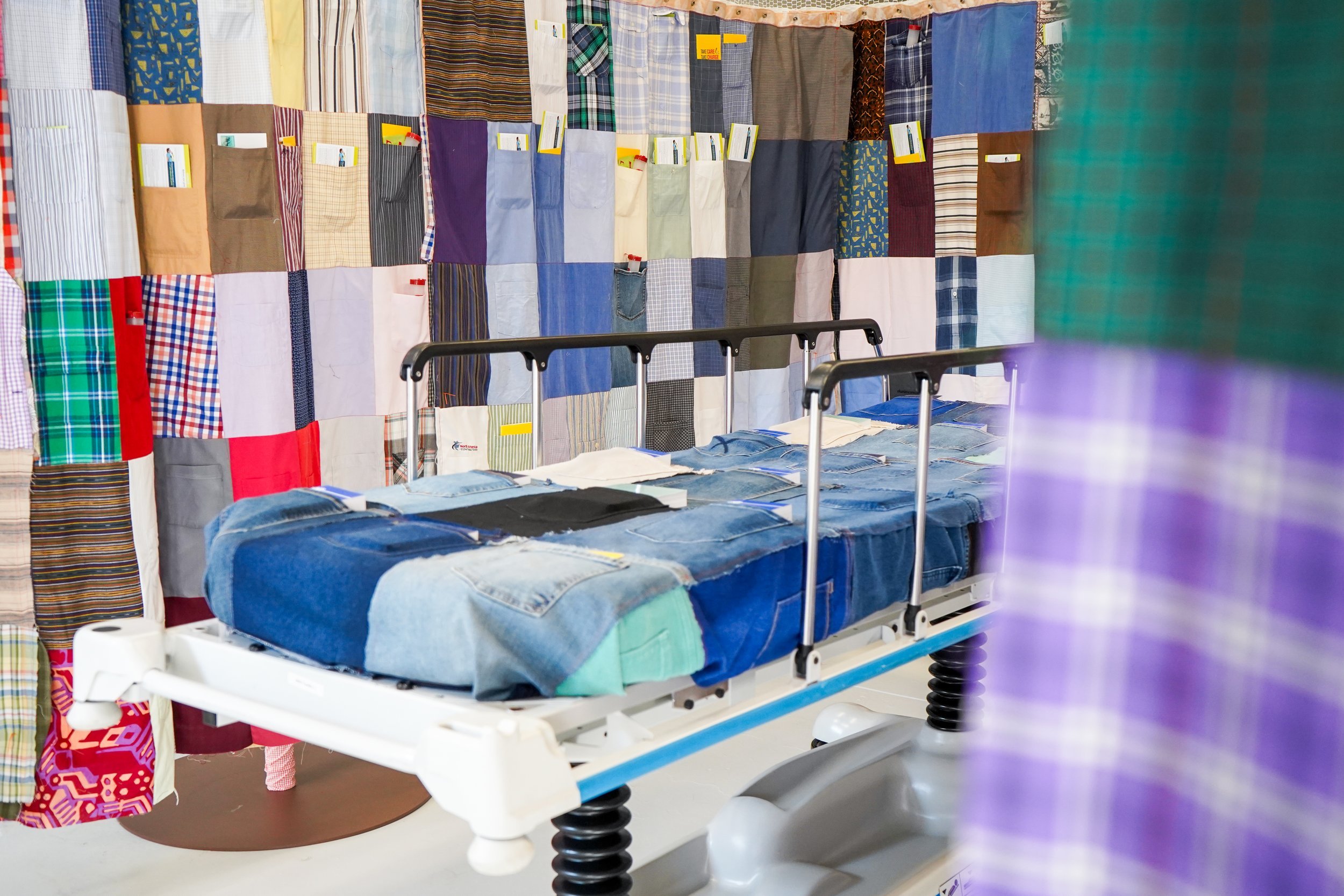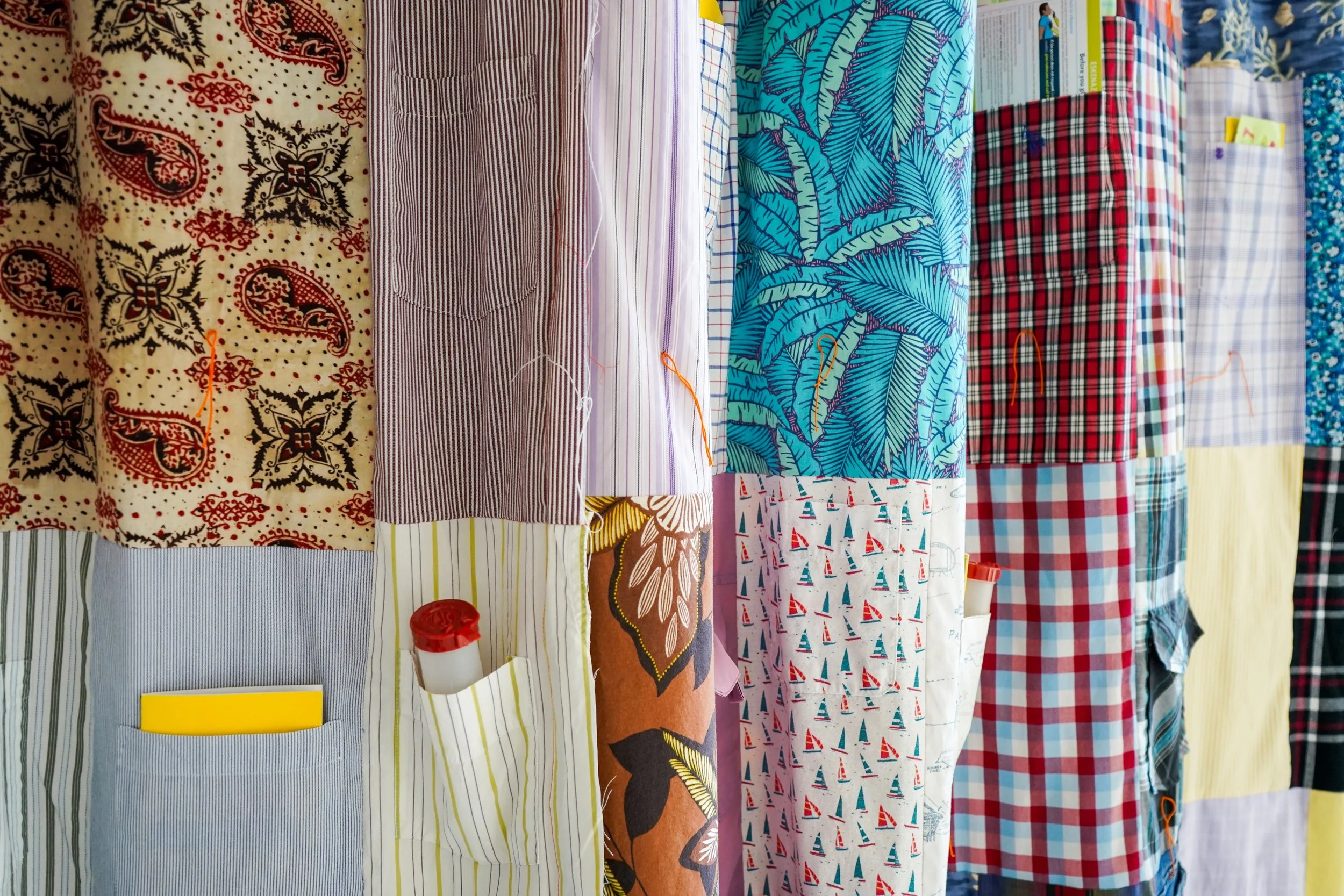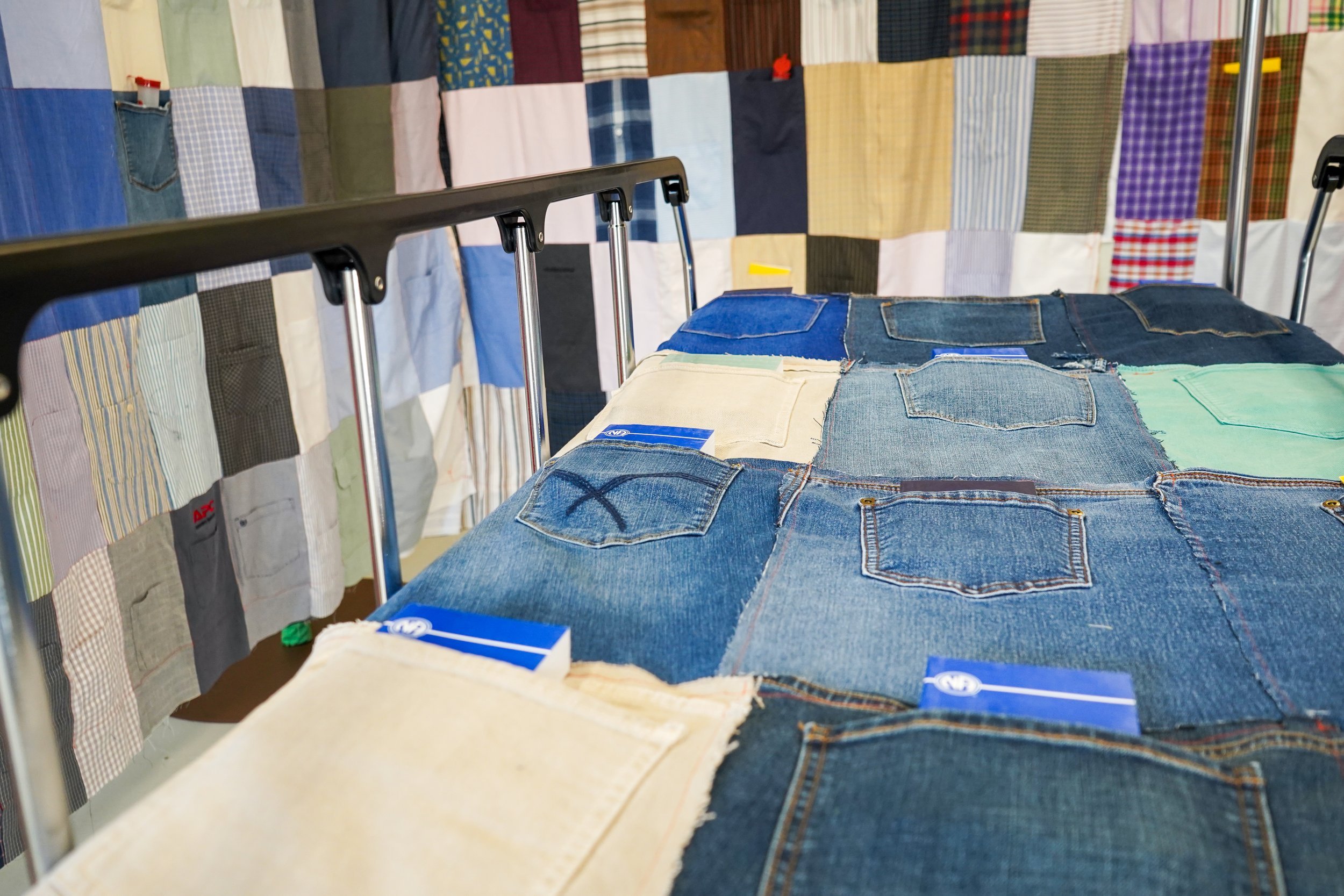COMFORT
Walk into Philip Campbell's COMFORT and you'll find yourself in the last place you'd expect to feel safe: a hospital triage area. But this isn't the harsh fluorescent nightmare of actual emergency departments. Campbell has quilted the entire space – gurney, curtains, every surface – using clothing donated by people in recovery. The pockets that once held keys and loose change now hold Narcan, fentanyl test strips, and 12-step books. Visitors can take what they need and leave something behind: letters to people they've lost to addiction. After seven years managing an Emergency Department team that serves people with substance use disorders, Campbell knows what he's talking about. These spaces usually scream crisis and desperation, but he's flipped the script entirely.
The installation has Campbell's punk rock fingerprints all over it; he's curated a soundtrack that features The Cramps and Dead Pioneers, to name a few. More telling, he never fixes his mistakes when he's working, letting the imperfections stay put. It's a perfect metaphor for recovery, where healing happens through persistence, not perfection. The quilted environment recreates what people in recovery call the "pink cloud", that early period when you're wrapped up in group support, surrounded by others who get it. As people move through the installation, Campbell says the different fabrics are talking to each other and the visitors, helping them choose the right pocket for their letter, which is made from fabric that somehow speaks of their lost person.
The piece changes as people use it; what starts as harm reduction slowly becomes memorial. Campbell could have made something abstract about addiction, but he went with what he knows: the actual mechanics of emergency medicine, the real interactions he has every day. The result isn't pretty in any conventional sense, but it does exactly what Campbell wants: it educates people by putting them inside an experience instead of lecturing them about statistics. Visitors don't just walk through COMFORT; they participate in it, take from it, and add to it, making the space evolve.



